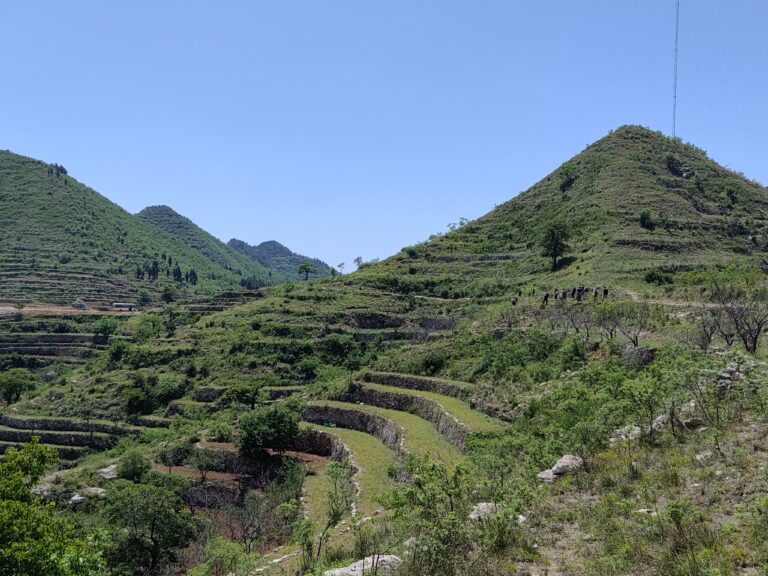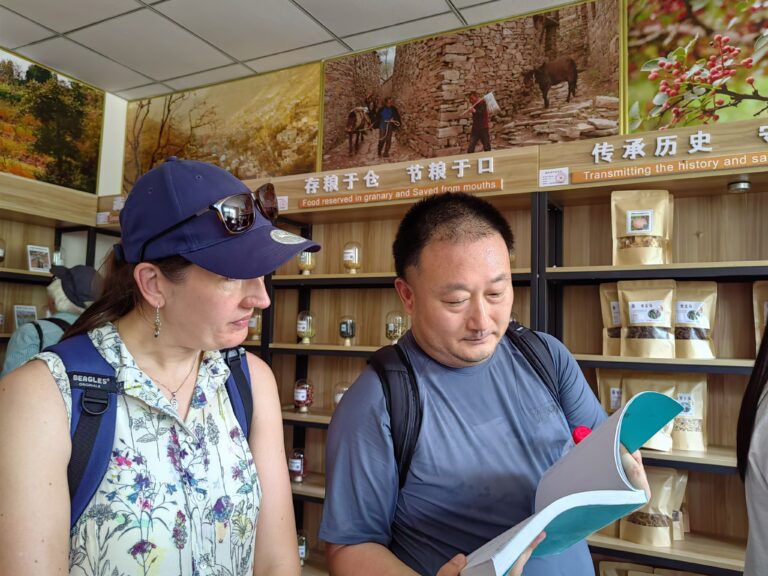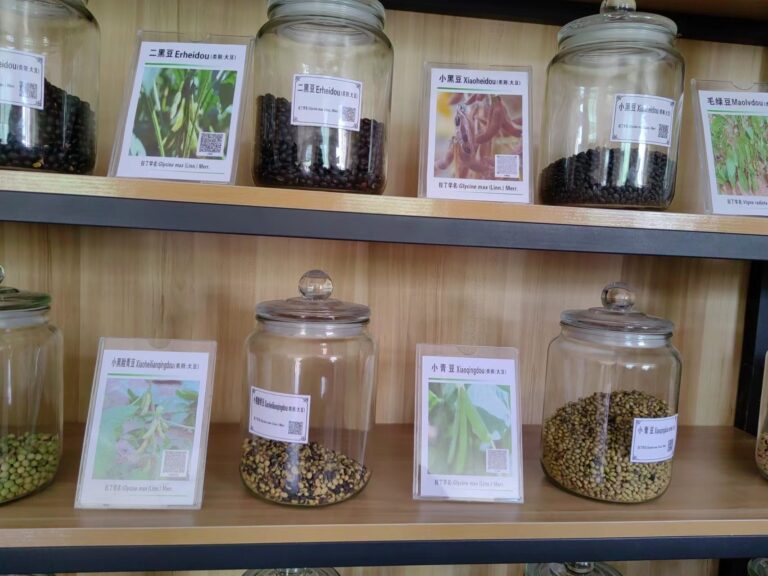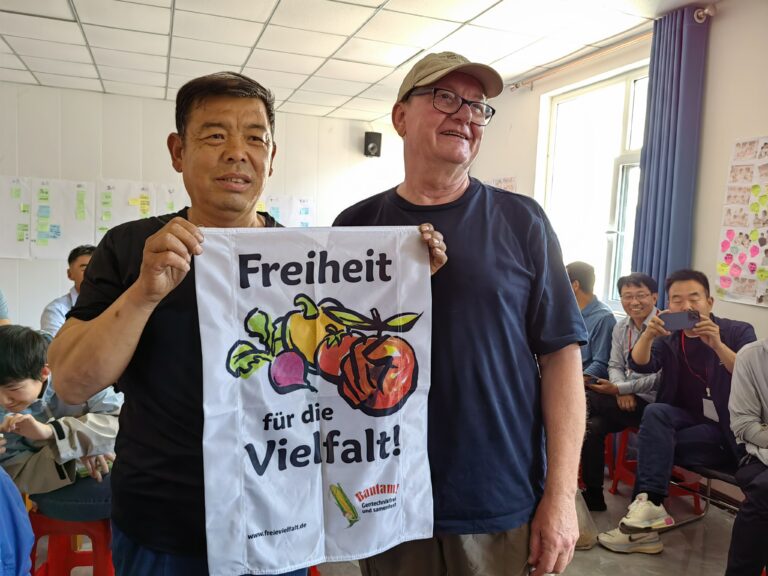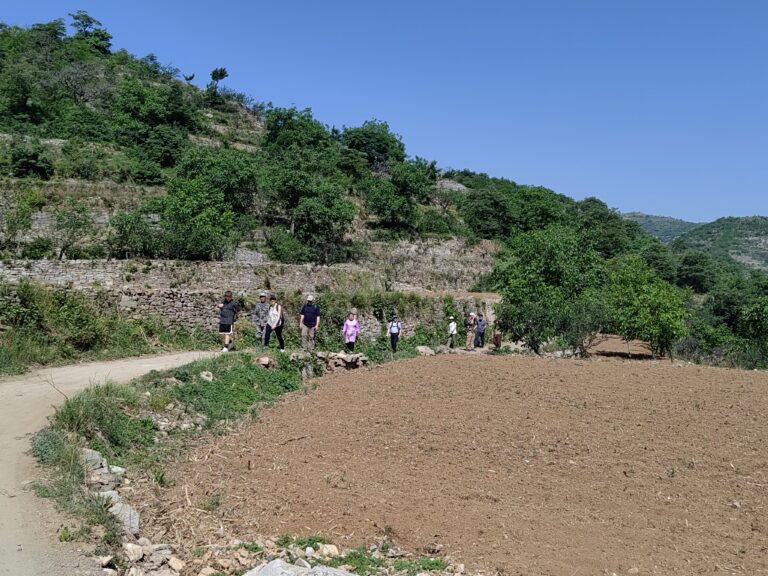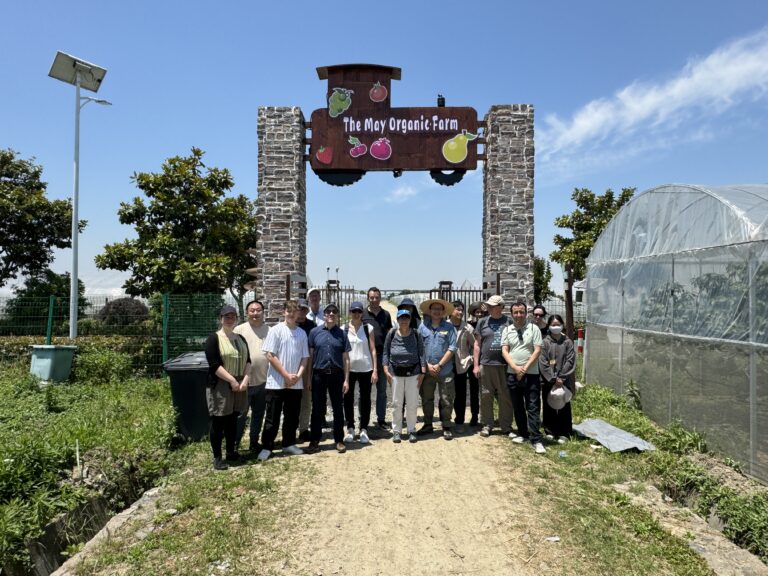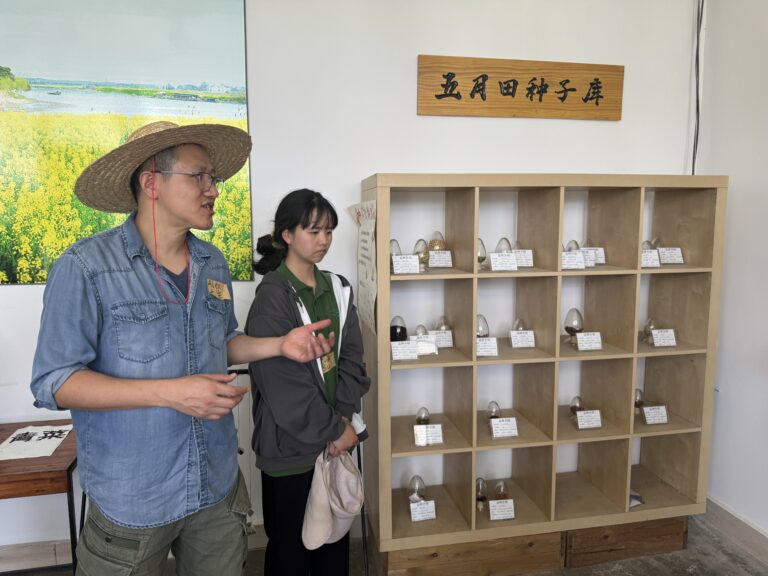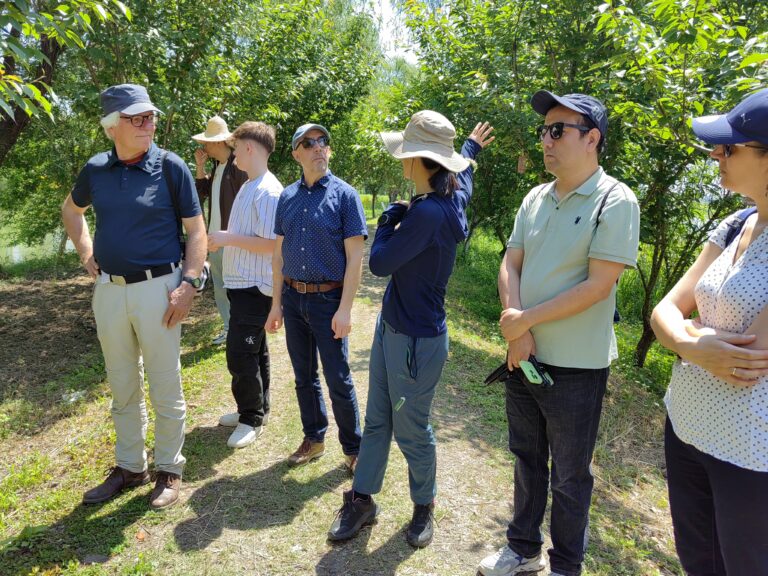From 12-17 May, the DCZ hosted a visit of German agro-biodiversity experts, exploring Chinese initiatives engaged in protecting and using old crop varieties. The conservation and recultivation of agro-biodiversity is not only central to making food systems more resilient to the impacts of climate change but can also offer economic opportunities to (smallholder) farmers and local communities.
Creating a bilateral expert network for agro-biodiversity
On the German side, participating institutions included Eberswalde University of Sustainable Development (Fachhochschule Eberswalde), the Association for the Preservation and Recultivation of Crops (VERN e.V.), nova-Institut, the Information and Coordination Centre for Biological Diversity (IBV) at the Federal Office for Agriculture and Food (Bundesanstalt für Landwirtschaft und Ernährung), the Foundation for Future Farming (Zukunftsstiftung Landwirtschaft), as well as the Alliance of Bioversity International and CIAT.
On the Chinese side, experts from Farmers’ Seed Network (FSN), Foodthink, and research institutions such as the Chinese Academy of Agricultural Sciences (CAAS) and China Agricultural University (CAU) participated.
The study tour began with a two-day intensive workshop in Beijing, where the German and Chinese experts discussed recent efforts in both countries aimed at the conservation and recultivation of old crop varieties. The debate focused on how to develop policy recommendations, build capacity in on-farm conservation, and share best practices to address the loss of cultivated plant varieties.

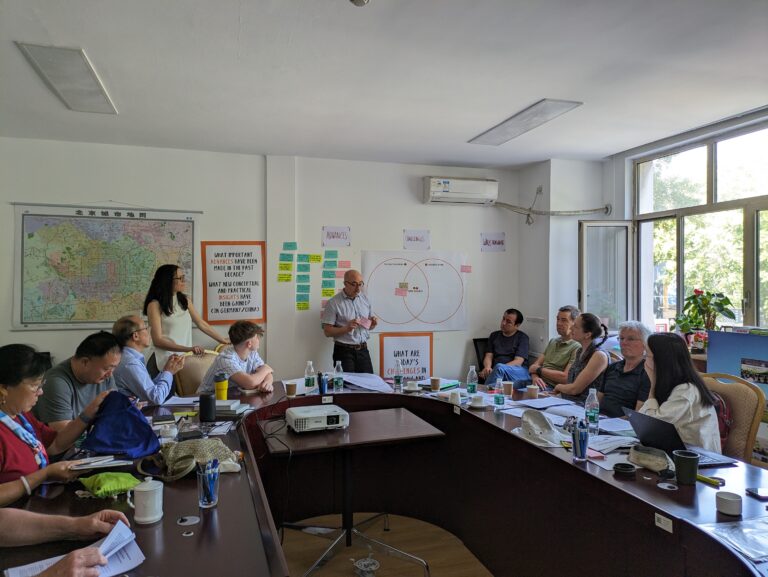

Visiting community seedbanks
On 14 May, we continued our tour with a visit to Wangjinzhuang, a village located in a mountainous region on the edge of the Taihang Mountains in Hebei Province. The 1000-household village became famous in the 1970s, when local farmers began to renovate and extend ancient stone terrace fields.
Guided by He Xianlin, former head of the Shexian Agricultural Bureau and founder of the Shexian Dryland Stone Terrace Conservation and Utilization Association, the group took a walk through Wangjinzhuang’s terrace fields and learned about the water retention function of the terraces and the incredible diversity of crops farmers are able to cultivate under harsh climatic conditions. Since 2014 the dryland stone terraces in Shexian County have been recognized as a national important agricultural heritage site and since 2022 are recognized by FAO as a Globally Important Agricultural Heritage System (GIAHS).
Wangjinzhuang’s community seedbank stores 171 seed varieties, including 82 landraces, collected from over 1,000 households in the village. Locally preserved varieties include traditional millet, beans, and corn cultivars as well as local vegetable and fruit varieties. An exhibition features samples of the collection with explanations of each variety accessible by scanning a QR code.
The seedbank is managed by the local Dryland Terrace Conservation and Utilization Association and open to all farmers from the community who wish to grow old varieties on their fields. For each kilo of seeds farmers receive from the bank, they are requested to return one and a half kilos.
In recent years, the association also undertook some efforts in online marketing of special beans, herbs, and fruit varieties in nicely designed packages. Attached to the seedbank is a small museum with photos and exhibits about the village history and the importance of the stone terrace system.
As a platform for farmers to exchange knowledge about old seed varieties, Wangjinzhuang’s community seedbank makes an important contribution to maintaining local agro-biodiversity and helping farmers adapt to climate change.
On 15 May, the delegation had the opportunity to exchange with some farmers from FSN in Northern China. Wang Xin, an organic farmer from Beijing showed with impressive photos how he is preserving impressive agricultural biodiversity on his small plot of land of only 5 mu (0.3 ha) in size. Larger farms also have a role to play, the group learned from a presentation by Zhao Jianshe, director of the Henan Zhongyuan Organic Agriculture Institute and Farm, a large commercial organic farm that follows the principles of agrobiodiversity protection.
The Hebei part of the excursion ended with a reflection workshop in Handan City before the delegation continued their tour to Jiangsu Province.
The study tour ended on 17 May with a visit to May Organic Farm near Suzhou, Jiangsu Province. Located in a large modern agricultural development zone of Suzhou, the farm grows over 100 varieties of vegetables, fruits, and wild rice on 15 ha of land.
May Organic Farm recently joined FSN and started a community seedbank. So far, the farm team has collected seeds of 32 landraces from nearby villages. According to farm manager Alex Li, the biggest challenge for May Farm is pest control because they need to rely on manual and biological pest control methods. The farm was built on the site of former rice fields, the soil of which was originally contaminated with heavy metals. After 11 years of organic farming, the soil quality has improved. In addition to greenhouses where vegetables are grown, the farm has a scenic outdoor area with fishponds, rice fields, and fruit plantations.
In the afternoon, the experts had the opportunity to meet with members FSN in Eastern China. A new farmer who formerly worked as a designer at an IT company explained why he returned to the village of his parents and took over the family’s traditional silkworm breeding business. Prof. He Xueqing from Xi’an Jiaotong University gave a fascinating presentation on agricultural diversification and resilience in rice production. The workshop concluded with a final wrap round, where the participants shared those observations that most impressed them.
Joint solutions to tackle the loss of agro-biodiversity
Supported by funding from the Innovation and Transformation Dialogue (ITD) of Germany’s Federal Ministry of Food and Agriculture (BMEL), the study visit is part of an ongoing DCZ project aimed at developing joint policy recommendations and sharing best practices to address the loss of cultivated plant varieties in Germany and China. A return visit of the Chinese experts to Germany is planned for June 2024, where the delegates will develop strategies how to establish a long-lasting network.




